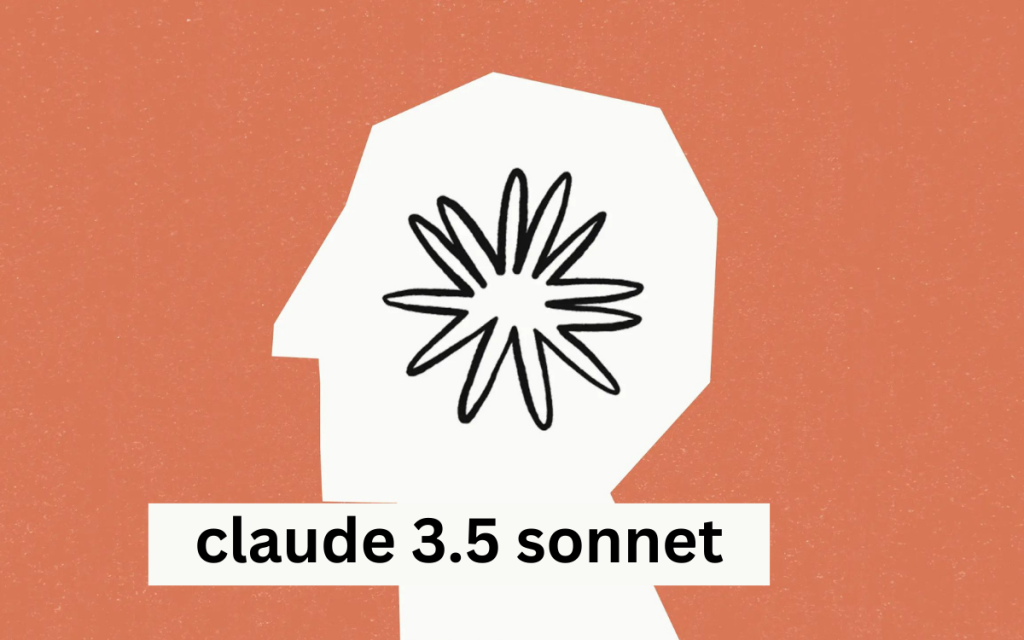How to Use Claude 3.5 Sonnet for Free? In an era where artificial intelligence is revolutionizing the way we work, learn, and create, having access to advanced AI models like Claude 3.5 Sonnet can be a game-changer. Developed by Anthropic, Claude 3.5 Sonnet represents the cutting edge of natural language processing and generation. But what if you could harness this power without spending a dime? This comprehensive guide will walk you through various methods to use Claude 3.5 Sonnet for free, helping you leverage its capabilities to enhance your productivity and creativity.
Understanding Claude 3.5 Sonnet: A Brief Overview
Before we dive into the ways to use Claude 3.5 Sonnet for free, let’s take a moment to understand what makes this AI model so special.
What Sets Claude 3.5 Sonnet Apart?
Claude 3.5 Sonnet is part of the Claude 3 family of AI models, known for their advanced natural language understanding and generation capabilities. Some key features include:
- Improved context retention and coherence in conversations
- Enhanced ability to handle complex tasks and queries
- Multilingual support
- Ethical AI design with a focus on safety and beneficial outcomes
Potential Applications of Claude 3.5 Sonnet
The versatility of Claude 3.5 Sonnet makes it suitable for a wide range of applications, including:
- Content creation and writing assistance
- Research and data analysis
- Problem-solving and brainstorming
- Code generation and debugging
- Language translation and learning
Free Methods to Access Claude 3.5 Sonnet
While Claude 3.5 Sonnet is a premium AI model, there are several ways to access its capabilities without spending money. Let’s explore these options in detail.
1. Anthropic’s Free Trial Program
One of the most straightforward ways to use Claude 3.5 Sonnet for free is through Anthropic’s official free trial program.
How to Sign Up for the Free Trial
- Visit the official Anthropic website
- Look for the “Free Trial” or “Try Claude” option
- Create an account using your email address
- Verify your account through the confirmation email
- Start using Claude 3.5 Sonnet for the duration of the trial period
Maximizing Your Free Trial Experience
- Set reminders for when your trial period ends
- Plan your usage to tackle high-priority tasks first
- Experiment with different types of queries to understand Claude’s capabilities
2. Academic and Research Access Programs
Many AI companies, including Anthropic, offer free or discounted access to their models for academic and research purposes.
Eligibility Criteria
- Being affiliated with an accredited educational institution
- Having a valid academic email address
- Conducting research in relevant fields such as AI, natural language processing, or machine learning
How to Apply for Academic Access
- Check Anthropic’s website for any dedicated academic programs
- Prepare a brief research proposal or statement of intent
- Submit your application along with proof of academic affiliation
- Wait for approval and follow the provided instructions to access Claude 3.5 Sonnet
3. Open-Source Alternatives and Community Projects
While not exactly Claude 3.5 Sonnet, there are open-source projects that aim to replicate some of its functionalities.
Popular Open-Source AI Models
- GPT-J: A powerful language model with similar capabilities
- BLOOM: A multilingual large language model
- T5: Google’s text-to-text transfer transformer
How to Use Open-Source Alternatives
- Visit platforms like Hugging Face or GitHub to find open-source models
- Follow the installation instructions for your chosen model
- Use Python or other programming languages to interact with the model
- Join community forums to learn best practices and share experiences
4. Integration with Free Platforms and Tools
Some platforms and tools offer limited free access to AI models similar to Claude 3.5 Sonnet as part of their services.
Examples of Platforms with AI Integration
- Notion AI: Offers AI writing assistance within the free plan
- GitHub Copilot: Provides AI-powered code suggestions (free for students)
- Google Colab: Allows you to run machine learning models for free
Steps to Leverage These Platforms
- Sign up for an account on your chosen platform
- Explore the AI features available within the free tier
- Use the AI assistance for tasks like writing, coding, or data analysis
5. Participating in Beta Testing Programs
AI companies often run beta testing programs to gather feedback on new features or models.
How to Find Beta Testing Opportunities
- Follow Anthropic and other AI companies on social media
- Join AI-focused forums and communities
- Sign up for newsletters from AI companies and publications
Tips for Successful Beta Testing
- Provide detailed and constructive feedback
- Report any bugs or issues promptly
- Engage actively with the testing community
Making the Most of Your Free Access to Claude 3.5 Sonnet
Once you’ve secured free access to Claude 3.5 Sonnet or a similar AI model, it’s essential to use it effectively. Here are some strategies to maximize your experience:
1. Define Clear Objectives
Before engaging with Claude 3.5 Sonnet, have a clear idea of what you want to achieve. This could be:
- Drafting a research paper
- Brainstorming creative ideas for a project
- Analyzing complex data sets
- Learning a new programming language
2. Craft Effective Prompts
The quality of Claude’s responses depends largely on the prompts you provide. Here are some tips for crafting effective prompts:
- Be specific and detailed in your requests
- Provide context when necessary
- Break down complex tasks into smaller, manageable steps
- Experiment with different phrasings to see what works best
3. Leverage Claude’s Strengths
Claude 3.5 Sonnet excels in various areas. Focus on tasks that play to its strengths, such as:
- Natural language understanding and generation
- Analytical thinking and problem-solving
- Creative writing and ideation
- Code generation and explanation
4. Iterative Refinement
Don’t expect perfect results on the first try. Use an iterative approach:
- Start with a basic prompt
- Analyze Claude’s response
- Refine your prompt based on the initial output
- Repeat the process until you achieve the desired result
5. Combine Human Expertise with AI Assistance
Remember that Claude 3.5 Sonnet is a tool to augment your skills, not replace them. Always:
- Fact-check important information
- Apply critical thinking to AI-generated content
- Use your domain expertise to guide and refine AI outputs
Ethical Considerations and Best Practices
While using Claude 3.5 Sonnet or any AI model for free, it’s crucial to adhere to ethical guidelines and best practices.
1. Respect Intellectual Property
- Don’t use AI-generated content without proper attribution
- Be aware of copyright laws when using AI for creative works
2. Maintain Data Privacy
- Avoid inputting sensitive personal information into AI models
- Be cautious about sharing confidential data, even if the service is encrypted
3. Understand AI Limitations
- Recognize that AI models can make mistakes or produce biased results
- Don’t rely solely on AI for critical decisions, especially in sensitive areas like healthcare or finance
4. Use AI Responsibly
- Avoid using AI for harmful, illegal, or unethical purposes
- Be transparent about AI usage in professional contexts
Alternatives to Claude 3.5 Sonnet
If you can’t access Claude 3.5 Sonnet for free or are looking for alternatives, consider these options:
1. OpenAI’s GPT Models
- GPT-3.5: Powerful language model with various applications
- Access: Through OpenAI’s API (limited free tier available)
2. Google’s BERT and T5 Models
- BERT: Excels in natural language understanding tasks
- T5: Versatile text-to-text transformer
- Access: Available through Google Cloud (free tier with limitations)
3. Meta’s OPT Models
- Open-source alternatives to GPT models
- Access: Freely available for research and non-commercial use
4. EleutherAI’s GPT-Neo and GPT-J
- Open-source language models with performance comparable to GPT-3
- Access: Freely available for download and use
Conclusion: Embracing the AI Revolution Responsibly
As we’ve explored in this comprehensive guide, there are numerous ways to access and leverage the power of Claude 3.5 Sonnet and similar AI models for free. From official free trials and academic programs to open-source alternatives and community projects, the opportunities to experiment with cutting-edge AI technology are more accessible than ever.
However, it’s crucial to approach these powerful tools with responsibility and ethical consideration. As you embark on your journey with AI, remember to:
- Respect intellectual property and data privacy
- Understand the limitations and potential biases of AI models
- Use AI as a tool to augment your skills, not replace critical thinking
- Stay informed about the latest developments in AI ethics and regulations
By following the strategies and best practices outlined in this guide, you can make the most of your free access to Claude 3.5 Sonnet or similar AI models. Whether you’re a student, researcher, entrepreneur, or simply an AI enthusiast, these tools have the potential to dramatically enhance your productivity, creativity, and problem-solving capabilities.
As the field of AI continues to evolve at a rapid pace, staying curious and adaptable will be key to harnessing its full potential. Keep exploring, experimenting, and learning, and you’ll be well-positioned to thrive in the AI-driven future that lies ahead.
Remember, the true power of AI lies not just in the technology itself, but in how we as humans choose to apply it. Use it wisely, ethically, and creatively, and you’ll unlock a world of possibilities – all without spending a dime.

